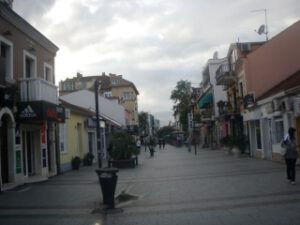Starting from 7am, half a million voters will decide on a new government, tasked mainly with seeing through the country’s EU membership talks and tackling the economy.
 Voting closes at 8pm on Sunday for the 514,055 Montenegrins whose names have found a place in the final version of the electoral roll.
Voting closes at 8pm on Sunday for the 514,055 Montenegrins whose names have found a place in the final version of the electoral roll.
They will choose between 13 election contenders. Parties must pass a 3-per-cent threshold to win any of the 81 seats in parliament.
The ruling Democratic Party of Socialists, DPS, and the Social Democratic Party, SDP, which together formed the last five governments, are fighting to retain power, running together with a new ally, the Liberal Party, in a coalition named “European Montenegro”.
Despite some attempts to do so, the main opposition parties have failed to unite.
The Socialist People’s Party, SNP, the Democratic Front, and Positive Montenegro, PCG, will all run separately.
Parliament, whose mandate was supposed to expire in March 2013, called early elections in order to enable a new full-term government to conduct EU membership talks, which opened on June 29.
The election campaign geared up from mid-September. The OSCE’s Office for Democratic Institutions and Human Rights, OSCE/ODIHR, has described it as “democratically correct”.
The new electoral law, adopted last September, retains a variant of the proportional representation formula, which slightly favours whichever political force wins most electoral support.
However, it includes some important changes. Ethnic Albanians, who make up 5 per cent of the population, have lost their five guaranteed seats.
Instead, all ethnic minorities that comprise up to 15 percent of the population are given preferential treatment. Those are, primarily, the Albanian, Bosniak [Muslim] and Croat communities.
Civil society groups and opposition parties previously complained that the electoral roll contained mistakes that might enable people to vote more than once in the election.
The authorities denied this. However, the Network for Affirmation of the Non-Governmental Sector, MANS, an NGO, on Wednesday said that the final version of the electoral roll still contained irregularities and it filed a criminal complaint against the authorities.
Apart from a new national government, locals in Budva, Niksic and Kotor will also choose new municipal authorities on Sunday.
(Balkan Insight News)















